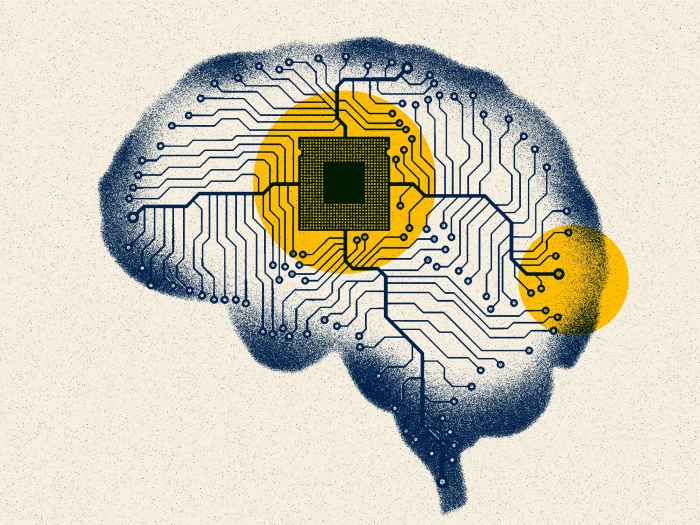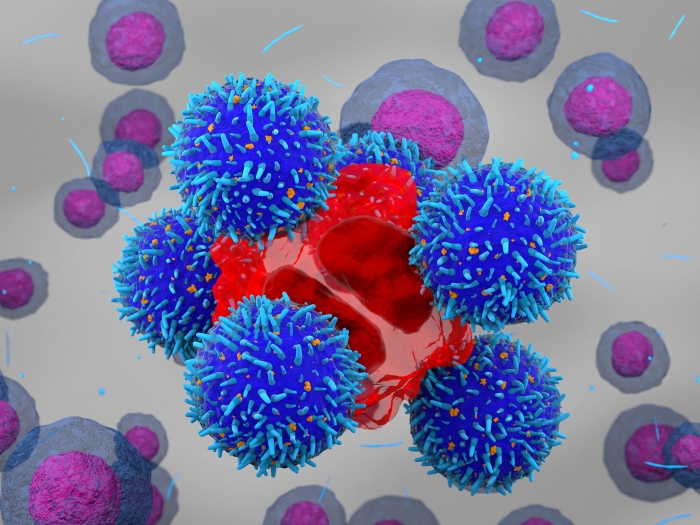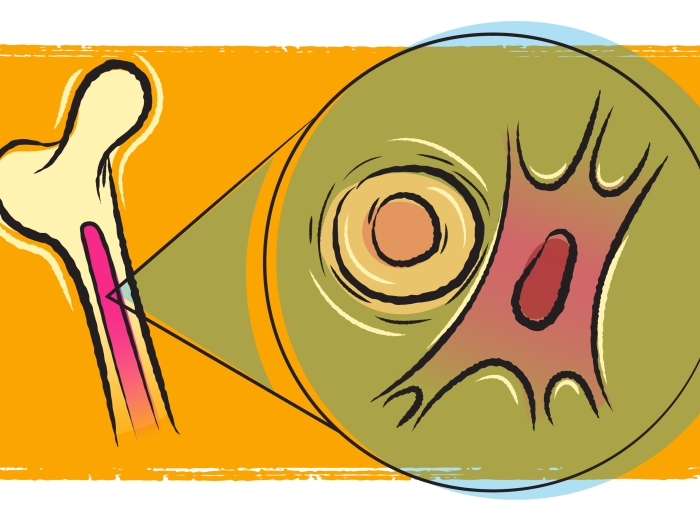Researchers used microfluidic devices to track what happens to cancer cells as they migrate and take root in the brain
5:00 AM
Author |
When cancer spreads to the brain, treatment options fall off. Most of the drugs designed to target metastases do not cross the blood-brain barrier or are ineffective at treating brain metastases.
“Understanding how cancer cells thrive or fail in the brain niche could help us develop new treatments targeting these molecular processes,” said Sofia Merajver, M.D., Ph.D., the Greater Good Breast Cancer Research Professor at the University of Michigan Rogel Cancer Center.
To understand the molecular processes that influence how cancer cells pass through the blood-brain barrier, Merajver and colleagues used two microfluidic chips that mapped cancer cell migration to the brain and looked at what was happening in the blood-brain niche. Results are published in the journal Advanced NanoBiomed Research.
Using breast cancer cell lines, they found that Dkk-1, a cytokine released by the astrocytes, triggers the cancer cells to migrate. Dkk-1 is known to play a role in in Wnt signaling, a key signaling pathway linked to cancer progression.
“Crosstalk between brain niche cells and cancer cells allows invading cancer cells to permeate the blood-brain barrier. Reducing Dkk-1 levels near invading tumor cells might disrupt this crosstalk and prevent brain metastases,” said corresponding author Christopher R. Oliver, Ph.D., a post-doctoral fellow in the Merajver Lab.
Additional authors: Trisha M. Westerhof, Benjamin A. Yang, Nathan M. Merill, Joel A. Yates, Megan Altemus, Liam Russell, Anna J. Miller, Liwei Bao, Zhifen Wu, Peter J. Ulintz, Carlos A. Aguilar, Aki Morikawa, Maria G. Castro
Funding for this work is from National Institutes of Health grants UL1TR002240, T32CA009676, 1R21CA245597-01, P30CA046592, 5T32CA009676-23, CA196018, AI116482; METAvivor Foundation, and the Breast Cancer Research Foundation.
This work was supported by these Rogel Cancer Center Shared Resources: Cancer Data Science, Cell and Tissue Imaging, Flow Cytometry, Immune Monitoring.
Paper cited: “Blood-Brain Barrier Remodeling in an Organ-on-a-Chip Device Showing Dkk1 to be a Regulator of Early Metastasis,” Advanced NanoBiomed Research. DOI: 10.1002/anbr.202200036

Explore a variety of health care news & stories by visiting the Health Lab home page for more articles.

Department of Communication at Michigan Medicine
Want top health & research news weekly? Sign up for Health Lab’s newsletters today!





